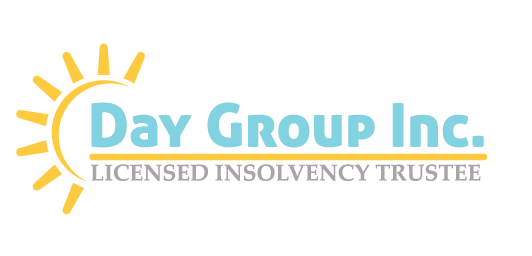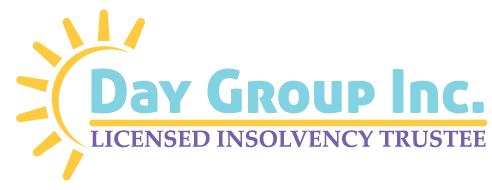What are Consolidation Loans or Debt Consolidation?
and how does it work
and how does it work
Consolidating your different debts by using a single loan with one monthly payment can help maintain your payments and simplify your life.
Is debt consolidation right for you?
Debt consolidation is often the best way for people to get out of debt. Here are some of the benefits that may apply.
Taking out a debt consolidation loan may help put you on a faster track to total payoff, especially if you have significant credit card debt. Credit cards don’t have a set timeline for paying off a balance, but a consolidation loan has fixed payments every month with a clear beginning and end to the loan.
Result: Repaying your debt faster means you may pay less interest overall. In addition, the quicker your debt is paid off, the sooner you can start putting more money toward other goals, such as a slush fund for unforeseen expenses, holiday fund, RRSPs, and retirement.
When you consolidate all your debt, you no longer have to worry about multiple due dates each month because you only have one payment. The payment is the same amount each month, so you know exactly how much money to set aside.
Result: Because you use the loan funds to pay off other debts, debt consolidation can turn two or three payments into a single payment. This can simplify budgeting and create fewer opportunities to miss payments and additional interest charges.
The average credit card rate is around 19 percent. Meanwhile, the average personal loan rate is below 10 percent. Of course, rates vary depending on your credit score and the loan amount and term length, but you’re likely to get a lower interest rate with a debt consolidation loan than what you’re currently paying on your credit card.
Result: Debt consolidation loans for consumers who have good to excellent credit typically have significantly lower interest rates than the average credit card.
If you use a personal loan to pay off your debt, you’ll know exactly how much is due each month and when your very last payment will be. Pay only the minimum with a high interest credit card and it could be years before you pay it off in full.
Result: By having a fixed repayment schedule, your payment and interest rate remain the same for the length of the loan, there’s no unexpected fluctuation in your monthly debt payment. Thus, you will feel a sense of relief knowing you will be debt free.
A debt consolidation loan may initially lower your credit score slightly since you’ll have to go through a hard credit inquiry, over time it will improve your score. That’s because it’ll be easier to make on-time payments and keep you on track. Your payment history accounts for 35 percent of your credit score, so paying a single monthly bill when it’s due should significantly raise your score.
Additionally, if any of your old debt was from credit cards and you keep your cards open, you’ll have both a better credit utilization ratio and a stronger history with credit. Always pay your cell phone bill on time they are recording regularly on your credit score, and this can help to increase your credit very quickly.
Result: Consolidating debt can ultimately improve your credit score compared to not consolidating. This is particularly true if you make on-time payments on the loan, as payment history is the most important factor in the calculation of your score. Your creditors are reporting frequently it’s your job to ensure you keep your payments up to date.
There are also some downsides to debt consolidation that you should consider before taking out a loan.
They may secure the loan to one of your assets and if you don’t make the payments, they can take the asset (example is your home or vehicle)
There are other multiple other non-borrowing options to consolidate your debt.
Consolidating debt does not guarantee that you won’t go into debt again. If you have a history of living beyond your means, you might do so again once you feel free of debt. To help avoid this, make yourself a realistic budget and stick to it. Ask us for assistance with your budget. We are not here to tell you how to budget but to walk you through putting together a budget that works for your household. You should also start building an emergency fund that can be used to pay for unexpected expenses, so you don’t have to rely on credit cards.
Result: Consolidation can help you pay debt off, but it will not eliminate the financial habits that got you into trouble in the first place, such as overspending or failing to set aside money for emergencies. You can prevent more debt from accumulating by putting together a budget and keeping track of your spending habits.
Some debt consolidation loans come with fees. These may include:
Before taking out a debt consolidation loan, ask about all fees, including those for making late payments or paying your loan off early. Depending on the lender that you choose, these fees could be hundreds if not thousands of dollars. While paying these fees may still be worth it, you’ll want to include them in deciding if debt consolidation makes sense for you. Do not rush into signing the loan get all the information and make an informed decision.
Result: Do you research and read the fine print carefully when considering debt consolidation loans to make sure you understand their full costs.
Your debt consolidation loan could come at a higher rate than what you currently pay on your debts. This could happen for a variety of reasons, including your current credit score.
Consumers consolidating debt get an interest rate based on their credit rating. The more challenged the consumer, the higher the cost of credit.
Additional reasons you might pay more in interest include the loan amount and the loan term. Extending your loan term could get you a lower monthly payment, but you may end up paying more in interest in the long run.
When you consider debt consolidation, weigh your immediate needs with your long-term goals to find the best solution. Make an informed decision prior to signing the agreement.
Result: Consolidation does not always end up reducing the interest rate on your debt, particularly if your credit score is less than ideal.
If you miss one of your monthly loan payments, you’ll likely have to pay a late payment fee. In addition, if a payment is returned due to insufficient funds, some lenders will charge you a returned payment fee. These fees can greatly increase your borrowing costs.
Lenders typically report a late payment to the credit bureaus after it becomes 30 days past due, your credit score can suffer serious damage. This can make it harder for you to qualify for future loans and get the best interest rate.
To reduce your chances of missing a payment, enroll in the lender’s automatic payment program if it has one.
Before you take out a debt consolidation loan, make sure you can afford the monthly payments. Missing a payment can lead to late fees and a lower credit score. Ensure you always have the funds in your account early for the payment.
Have you been denied a consolidation loan? Call Day Group and ask if you qualify for a Consumer proposal one monthly payment with no interest this will include all your unsecured debts (credit cards, CRA, unsecured line of credits).
In addition to assisting, you with budgeting and settling your debt, we also want you to live debt free. We’ll offer you resources and debt management tools that will assist you with developing and maintaining “good credit.”
Many Canadians are not aware there are non borrowing options available. A legal debt consolidation that does not require you to take on additional debt could include filing a consumer proposal through a Gov’t Licensed Trustee such as Day Group. We can work with you to tailor your proposal to your creditors to fit your family budget. Consumer proposals are a flexible and affordable option for so many people. Call or message us today and get the answer you are looking for.
We work with clients across Alberta.
We provide you with the best possible advice, regardless of location or mobility.

DAY GROUP INC.
Licensed Insolvency Trustee
Tel: 825-450-2193

Licensed by the federal government
© 2024 Copyright – Day Group Inc. | All Rights Reserved
This is a notification that can be used for cookie consent or other important news. It also got a modal window now! Click "learn more" to see it!
OKLearn MoreWe may request cookies to be set on your device. We use cookies to let us know when you visit our websites, how you interact with us, to enrich your user experience, and to customize your relationship with our website.
Click on the different category headings to find out more. You can also change some of your preferences. Note that blocking some types of cookies may impact your experience on our websites and the services we are able to offer.
These cookies are strictly necessary to provide you with services available through our website and to use some of its features.
Because these cookies are strictly necessary to deliver the website, refusing them will have impact how our site functions. You always can block or delete cookies by changing your browser settings and force blocking all cookies on this website. But this will always prompt you to accept/refuse cookies when revisiting our site.
We fully respect if you want to refuse cookies but to avoid asking you again and again kindly allow us to store a cookie for that. You are free to opt out any time or opt in for other cookies to get a better experience. If you refuse cookies we will remove all set cookies in our domain.
We provide you with a list of stored cookies on your computer in our domain so you can check what we stored. Due to security reasons we are not able to show or modify cookies from other domains. You can check these in your browser security settings.
These cookies collect information that is used either in aggregate form to help us understand how our website is being used or how effective our marketing campaigns are, or to help us customize our website and application for you in order to enhance your experience.
If you do not want that we track your visit to our site you can disable tracking in your browser here:
We also use different external services like Google Webfonts, Google Maps, and external Video providers. Since these providers may collect personal data like your IP address we allow you to block them here. Please be aware that this might heavily reduce the functionality and appearance of our site. Changes will take effect once you reload the page.
Google Webfont Settings:
Google Map Settings:
Google reCaptcha Settings:
Vimeo and Youtube video embeds:
The following cookies are also needed - You can choose if you want to allow them:
You can read about our cookies and privacy settings in detail on our Privacy Policy Page.
Privacy Policy